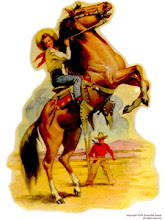Disc and disk are homophones.
These two words disc and disk are hard to get right when writing about CDs, CD-ROMs, floppy and/or hard drives. Seems as if all would be the same but they aren't, so be careful when writing about them.
disc: Noun; 1. Sound recording consisting of a disc with continuous grooves; formerly used to reproduce music by rotating while a phonograph needle tracked in the grooves. Compact Disc
2. something with a round shape like a flat circular plate.
3. Cushions of the spine.
When writing about CDs, CD-ROMs and the spine the preferred spelling is disc.
When writing about floppy and/or the hard drive the preferred spelling is disk.
Disk: noun;
1.(Computer science) a memory device consisting of a flat disk covered with a magnetic coating on which information is stored. Floppy Disk
2.a flat circular plate.
Homophones and Homonyms
Homophones are words that sound like another when spoken but have different meanings and use, different spelling and origin.
Homonyms are words that are spelled like another but of a different meaning.
(e.g., bank= a place where you keep money,
bank= the edge of a river.
Words from the first group are the most common misused words in the English language when writing.
Most of the mistakes I see in writing on websites and blogs are words that are used quite often in the English language. Most of them fall into the homophones category. I see a lot of blogs that contain these common mistakes. Needless to say after a while I quit reading the blogs. So this is a reminder to all bloggers READ what you post and look for these common mistakes. I'm sure your readers will be very thankful.
I have been receiving emails with questions about oxymoron, euphemism, metaphor, cliche, palindrome,
anagram, and pleonasm.
The most frequent ones we see on the internet are usually OXYMORON. I know you have received (as all of us have) some ads/emails that say free loan, biggest little, and/or pretty ugly. I get a laugh every time I see these ads.
Well, my dear readers here are the answers to what each of these are.
oxymoron: a figure of speech by which a locution produces an incongruous, seemingly self-contradictory effect, as in "cruel kindness"
euphemism: 1. the substitution of a mild, indirect, or vague expression for one thought to be offensive, harsh, or blunt. 2. the expression so substituted: "To pass away" is a euphemism for "to die."
metaphor: a figure of speech in which an expression is used to refer to something that it does not literally denote in order to suggest a similarity, as in "love is a battlefield.
cliche': A phrase or opinion that is overused and betrays a lack of original thought. For example: "One man’s trash is another man’s treasure."
palindrome: A word, phrase, verse, or sentence that reads the same backward or forward. For example: A man, a plan, a canal, Panama!
anagram: a word, phrase, or sentence formed from another by rearranging its letters: “Angel” is an anagram of “glean.”
pleonasm: 1. the use of more words than are necessary to express an idea; redundancy.
2. an instance of this, as free gift or true fact.
3. a redundant word or expression.
A little language humor

Word for the week: arachibutyrophobia
Learn a new word every week to expand your vocabulary.
Almost everyone likes peanut butter but there are some who suffer with arachibutyrophobia
rachibutyrophobia : fear of peanut butter sticking to roof of mouth
I don't think a Psychiatrists, Psychologists, Psychotherapists or a Mental Health Specialists
would ever use this word in front of a patient who has this phobia even if it is the correct word for their fear.
hippopotomonstrosesquippedaliophobia... the fear of long words
Ludibrious:Adj.; A subject of jest or mockery – This word describes a person, thing or situation that is likely to be the butt of jokes. Use it when you want to sound justified in poking fun at someone.
- erotem: noun; The symbol used in writing known as a question mark...?
neologism: noun ; coining of new words, new word or meaning
enormity: noun;heinousness, evilness, wickedness, monstrous, great size
abscond: verb; to run away and hide, depart hurriedly, avoid arrest.
samizdat: noun; clandestine publication of banned literature
anomaly: noun; something different, abnormal, peculiar, or not easily classified; deviation from the normal or common order, or form, or rule; a person who is unusual
obfuscate: verb; To make something obscure or hard to understand. ( Like the tax codes)
quintessence: noun; purest and most perfect form, manifestation, type, or embodiment
Lipogram: noun; A piece of writing that avoids one or more letters of the alphabet. From Greek lipo- (lacking) + gram (something written).]
triskaidekaphobia: noun; Fear of the number 13.
anomalous: adjective; irregular, deviant, abnormal
diatribe: noun; a bitter verbal attack or speech
ennui: noun; mental weariness, boredom
aficionado: noun; devotee of a sport or pastime
Subscribe to:
Post Comments (Atom)










No comments:
Post a Comment